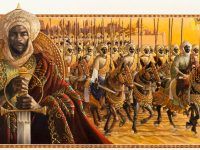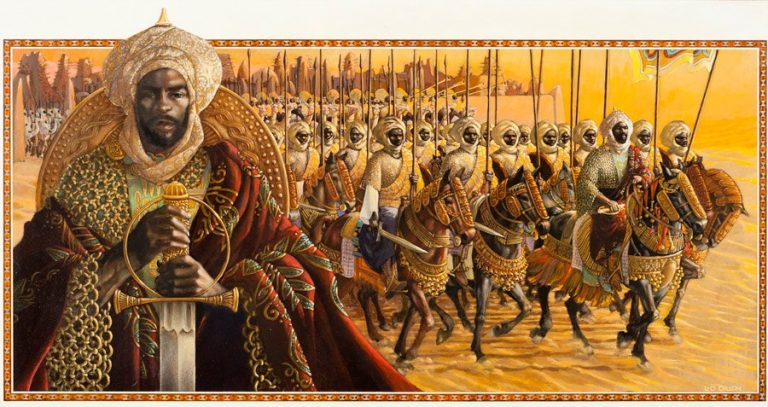If you were to walk into an elementary, middle, or high school class and ask a classroom full of students who was the richest black person ever, their answers might range from someone who was in the entertainment industry, to athletes who have managed to surpass records and expectations, to politicians who have sought great change in the world, to writers who made an impact on society’s perceptions.
The least likely answer given would probably be Mansa Musa, an African king who shared his wealth along his journeys and sought to bring enlightenment and peace to the states comprising his kingdom of Mali. Mansa Musa was actually thought to be the richest man in the world, with an overall net worth to be somewhere around $400 billion in today’s currency. The result of Mansa Musa’s vast wealth was partially the result of his country’s own immense natural resources.
Musa was born in 1280. He inherited the title of Mansa meaning “king” in 1312 from his predecessor Abu Bakr II, who was dubbed Africa’s greatest explorer. The kingdom of Mali stretched 2,000 miles from the Atlantic to Lake Chad. It prospered peacefully for decades under Mansa Musa. During his time as King, Musa was described as a Muslim traditionalist well-versed in Arabic and the Muslim teachings.
Musa would go on to make the 4,000-mile pilgrimage to Mecca in 1324, bringing with him a considerable amount of his nation’s wealth and a 60,000-man caravan of well-dressed servants and slaves bearing silks and golden staves. It was this trip that would put Mali on the world map and make Mansa Musa known among the leaders of the Middle East and Europe.
During his travels to Mecca, Musa distributed his wealth to the poor, charitable organizations, and the rulers of the lands he visited. It is said that when he passed through Cairo, Egypt, he ended up giving away so much of his gold that he temporarily caused a brief decline in its value. Following his visit to Mecca, Musa had Arab scholars, government bureaucrats and scholars brought back to Mali to boost its Islamic education and through the creation of mosques, libraries, and universities.
Following his death in 1337, tales were told of Mansa Musa’s pilgrimage to Mecca and of his generosity to the lands he visited. The moral and religious ideals he taught would endure his death for centuries. In the years that followed Musa’s reign, maps were drafted to included the depiction of Mali which usually included a reference to one of its great king.





















